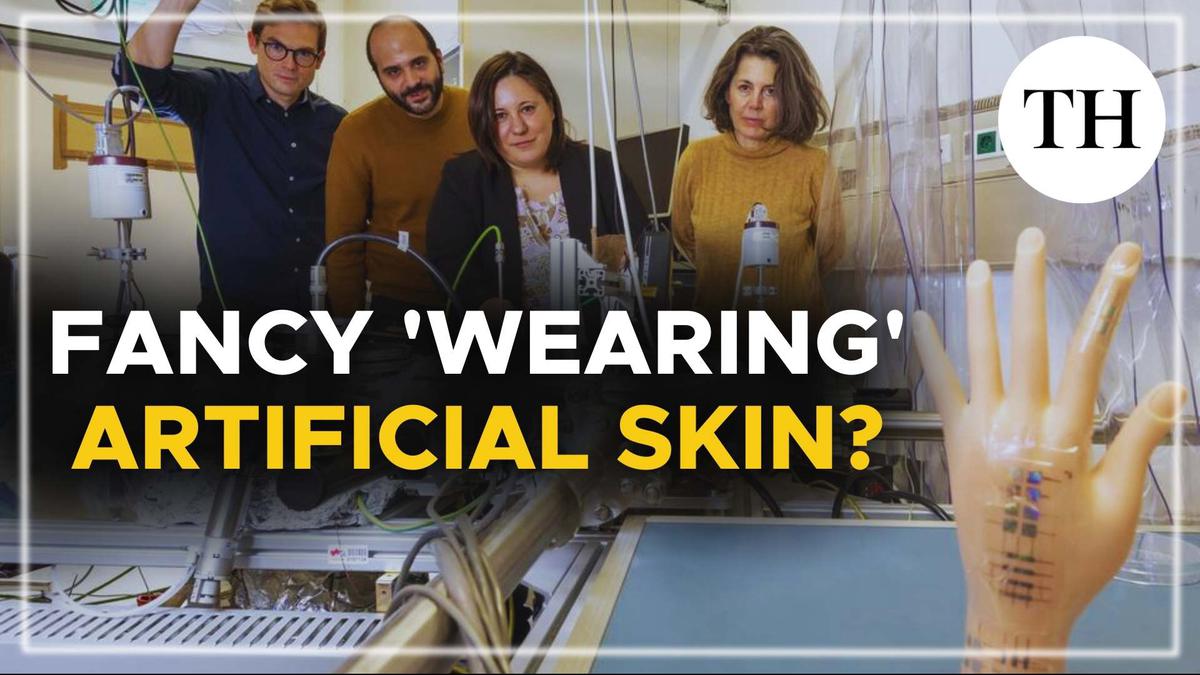
Watch | ‘Artificial skin’ prototype developed by scientists in Austria
The Hindu
All about the new artificial skin prototype developed by scientists at TU Graz in Austria
Scientists at TU Graz in Austria, have developed a prototype for artificial skin. Sometimes in winter, it gets so cold in Graz that you can hardly feel your fingertips.
Just like wearables, this prototype gets really close to the human skin. Last year, Dr. Anna Maria Coclite and her team of researchers from the Institute of Solid State Physics at Graz University of Technology (TU Graz) presented the results of their research to the European Research Council, to land Proof of Concept funding for their project ‘SmartCore’.
Dr. Coclite and her team had succeeded in developing a three-in-one “smart skin” hybrid material, which closely resembles human skin by simultaneously sensing pressure, moisture and temperature and converting them into electronic signals. With 2,000 individual sensors per square millimetre, the hybrid material is more sensitive than a human fingertip, giving it its reputation, and, at 0.006 millimetres thick, many times thinner than human skin.
The team argued that by reacting to these three human sensory impressions, the smart skin prototype surpasses all electronic skin materials on the market to date which only react to pressure and temperature.
The Hindu spoke to Dr Coclite for more on this unique concept.
Read more: The finer touch: when ‘artificial skin’ is more sensitive than the original
Reporting: Ramya Kannan

Gaganyaan-G1, the first of three un-crewed test missions that will lead up to India’s maiden human spaceflight, is designed to mimic - end to end - the actual flight and validate critical technologies and capabilities including the Human-rated Launch Vehicle Mark-3 (HLVM3), S. Unnikrishnan Nair, Director, Vikram Sarabhai Space Centre (VSSC), has said










